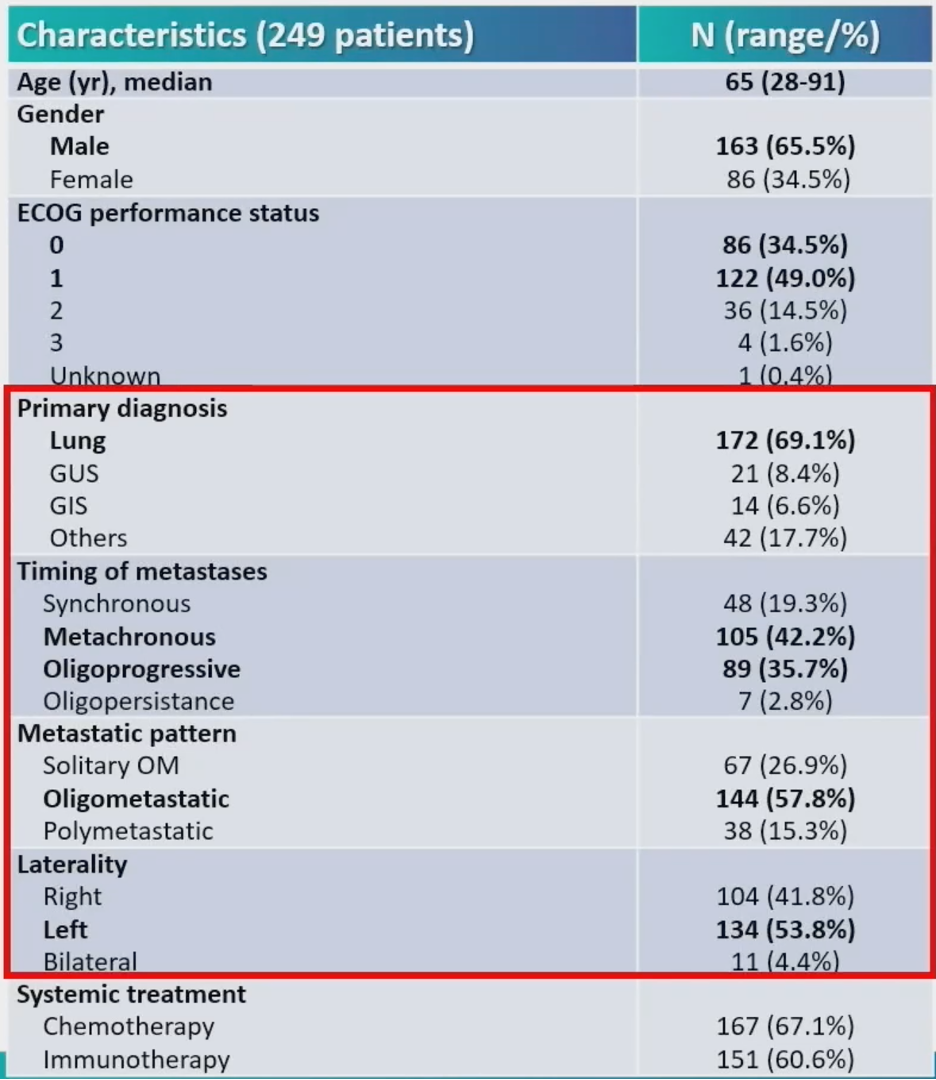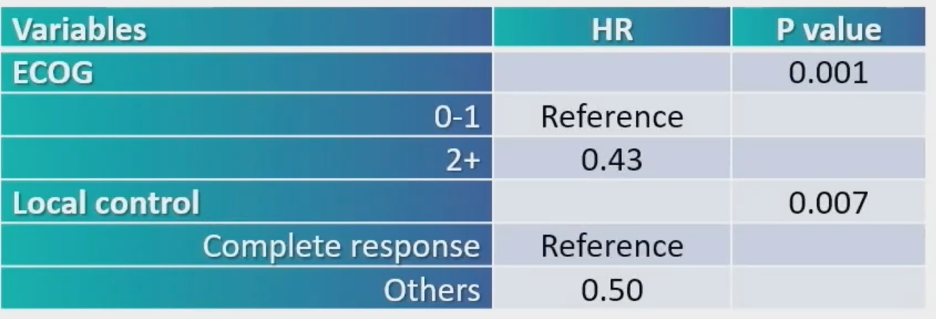held in San Diego, CA between October 1st and 4th, 2023 was host to a session on miscellaneous genitourinary topics. Dr. Gamze Ugurluer presented the results of a pooled, multi-institutional analysis evaluating the outcomes of MR-guided stereotactic body radiotherapy (MRgSBRT) for patients with adrenal metastases.
Stereotactic body radiotherapy (SBRT) has emerged as an effective treatment for adrenal metastases but can be technically challenging due to the adrenal gland’s proximity to many at-risk organs. The introduction of MRgSBRT has led to an increase in referrals for adrenal SBRT. As such, the objective of this study is to perform a multi-institutional analysis of clinical outcomes and toxicities after adrenal MRgSBRT on a 0.35 Tesla unit.
This was a multi-center analysis from 10 institutions (4 USA and 6 European) of 249 patients treated between 2016 and 2022. This analysis included clinical and dosimetric data from 249 patients with 260 treated lesions. The study outcomes included:
- Local control (per lesion basis)
- Local progression-free survival (per lesion basis)
- Distant progression-free survival (per patient basis)
- Overall survival (per patient basis)
The time-to-event outcomes were assessed using the Kaplan Meier method, with between group comparisons performed using the log-rank test. Response was evaluated using the RECIST criteria, and toxicity was graded using CTCAE (v4.0).
The baseline patient characteristics are summarized below. Of note, 70% of patients had primary lung cancer, with 8% having primary genitourinary malignancies. The metastatic timing was either metachronous or oligoprogressive in almost 80% of patients. 85% of patients had either solitary or oligometastatic disease.

With regards to the treatment administered, the median total dose was 45 Gy at a median fraction dose of 10 Gy in 5 fractions. Treatment was most commonly administered every other day (69%).

At a median follow-up of 18 months, the local control responses were as follows:
- Complete response: 37%
- Partial response: 28%
- Stable disease: 26%
- Progressive disease: 9%
The overall survival and local progression-free survival rates are demonstrated below:

On multivariable analysis, significantly higher overall survival rates were observed in patients achieving a complete response (HR=0.50, p=0.007) and with ECOG scores of 0-1 (HR 0.43, p=0.001).

Of note, no local recurrences were observed when treatment to a BED10 >100 was delivered or with a single fraction (range 16-24 Gy - BED10:42-82). Only 2 patients (0.8%) had grade 3 late toxicity (L1 vertebra fracture and adrenal insufficiency due to bilateral SBRT).
Dr. Ugurluer concluded the presentation with the following take home messages:
- This analysis of 260 adrenal metastases treated in a 7-year period represents the largest reported experience using MRgSBRT
- Daily plan adaptation was performed in 90% of MRgSBRT plans, which may account for a favorable 2-year local progression-free survival of 89%, and less than 1% risk of grade 3 or worse toxicity.
- These results suggest that adaptive MRgSBRT may represent a new standard of care for adrenal tumors
Presented By: Dr. Gamze Ugurluer, MD, Associate Professor, Department of Radiation Oncology, Maslak Hospital and Acibadem MAA University, Istanbul, Turkey
Written By: Rashid K. Sayyid, MD, MSc – Society of Urologic Oncology (SUO) Clinical Fellow at The University of Toronto, @rksayyid on Twitter during the 2023 American Society for Therapeutic Radiation Oncology (ASTRO) 65th Annual Meeting held in San Diego, CA between October 1st and 4th, 2023


